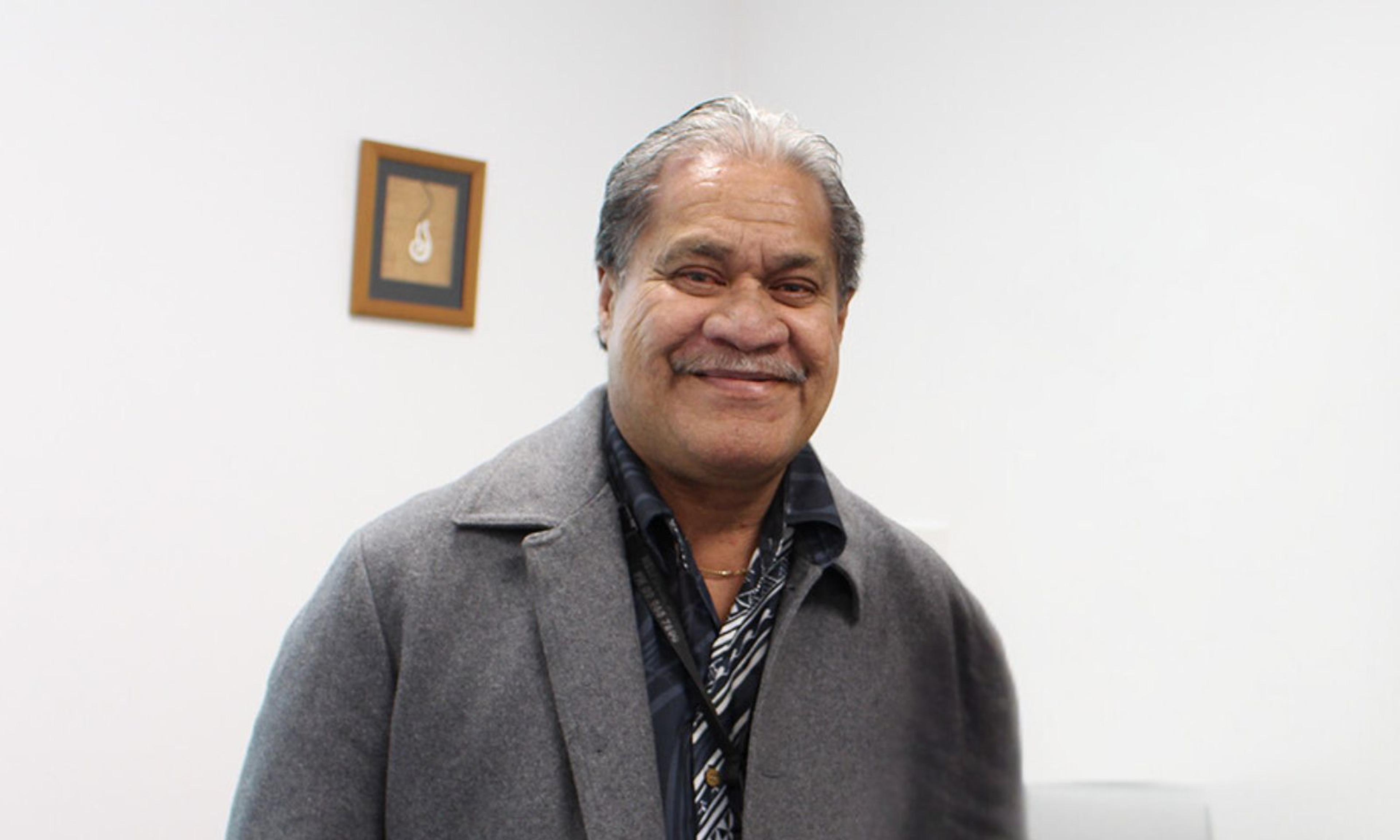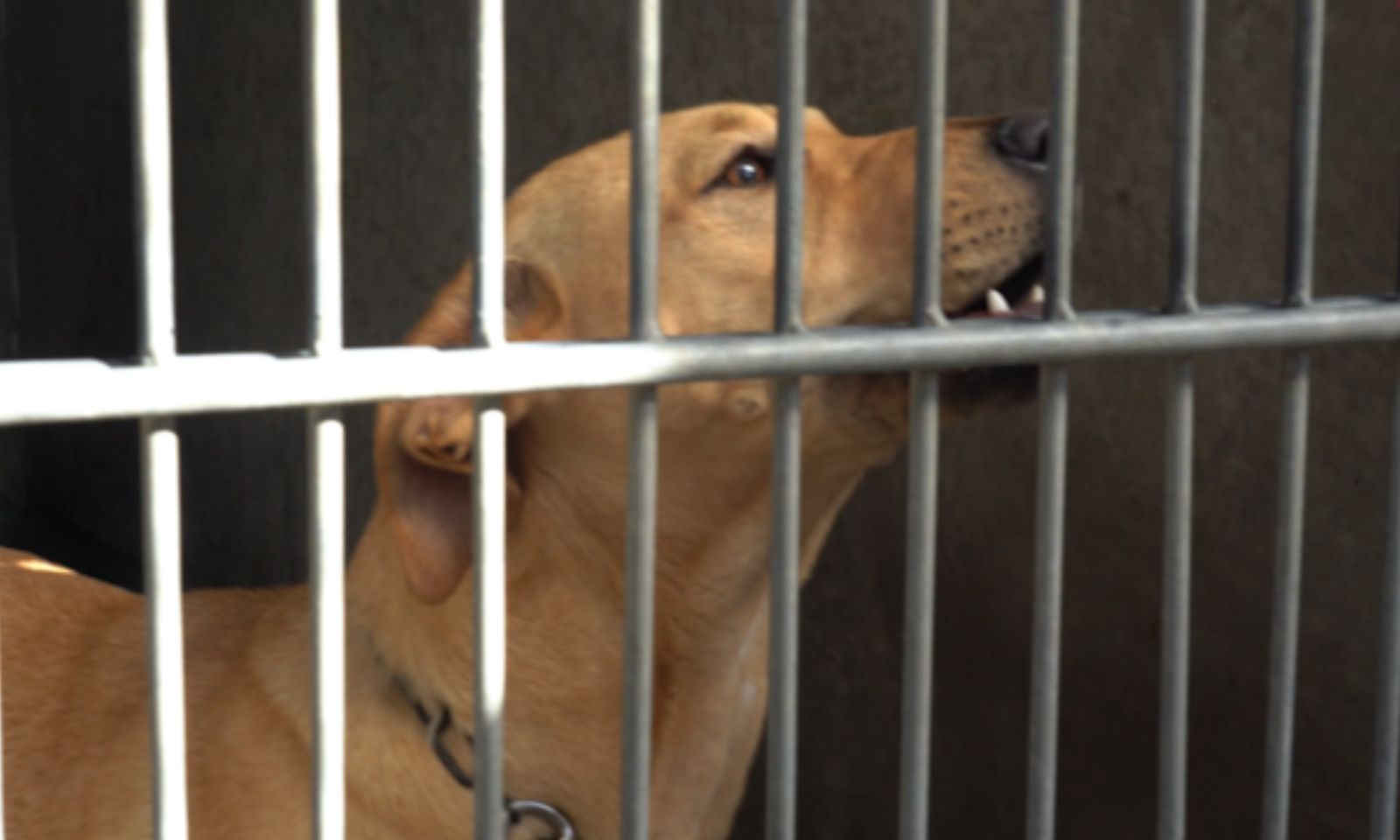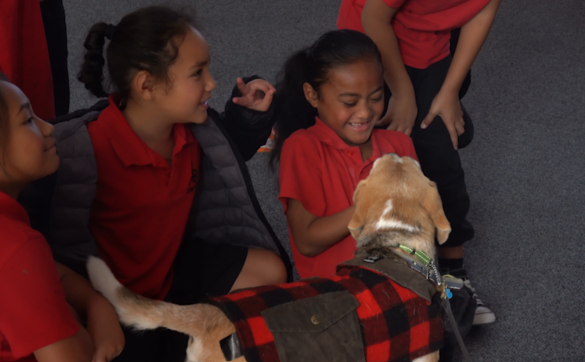

Pacific and Māori children have higher hospitalisation rates due to dog attacks.
PMN News/Candice Ama
Pacific children among highest hospital admissions for dog attacks
New data shows Pacific and Māori children are at higher risk of dog attacks, prompting calls for increased awareness, responsible ownership, and education.




Tahiti prove too strong for Sāmoa in World Cup qualifier

PNG Language Week: Diaspora embracing milestone achievement




Tahiti prove too strong for Sāmoa in World Cup qualifier

PNG Language Week: Diaspora embracing milestone achievement
It’s hard to see a beloved pet as a potential risk, but Auckland Council is warning ‘any dog can bite’, as the number of reported dog-related injuries increases.
Figures from University of Otago Injury Prevention Research Unit show 696 children were hospitalised between 2017-2021 for dog-related injuries. That’s 12 children a month. Eight out of 10 hospitalisations were children aged 0-9, and more than half happened at home.
Auckland Council’s Chair of the Regulatory and Safety Committee, Josephine Bartley, says it’s a major issue, and mostly preventable.
“Statistics, including data from Starship Hospital, highlight that children under nine years old of Māori and Pasifika communities are more likely to be seriously injured in dog attacks.
“We need dog owners to be more responsible and to ensure their dogs are registered, desexed, microchipped, controlled, and are not left to roam freely, as this is when many of the problems occur, including dog attacks.”
Going astray
Manukau Animal Shelter is the busiest in the country, with 120 kennels. Last year, more than half of the dogs through the shelter were unregistered
Auckland Council proactive animal management officer Sam Salima said the dog population was out of control.
“They come in pregnant or the puppies get dumped. If you’ve got all these roaming dogs and they’re not desexed, you get all these unwanted litters.
“It’s still such an unregulated industry. You can still get a dog on Trademe or Marketplace, no one’s checking if you’ve got a fence.
“The kids say ‘I want a dog’, so they go and get a dog, but there’s actually more to it. I think a lot of it is people getting dogs, and if they go missing, they get another dog.”

Photo/PMN News/Candice Ama
Salima said there may be cultural differences in how dogs were treated in the Pacific.
“I’m part Tongan and Sāmoan as well, and the dogs back home, they can go wherever they want. But here, we can’t do that, because that’s how it all starts.”
Salima said most children were drawn to animals, but the responsibility lay with the dog owner.
“When they see a dog, they just want to play. In their minds, every dog’s nice.”
A spokesperson for Safekids Aotearoa said the number of dog-related injuries was “unacceptably high”, and could cause ongoing issues.
“These harms can extend beyond physical injury to include psychological trauma following a dog attack and the development of post-traumatic stress disorder.
“We acknowledge the life-long impacts on dogs, dog owners, families, parents and most importantly children’s relationships.”
Education and awareness
Pacific and Māori children are around two times more likely than European children to be hospitalised due to dog-related injuries, mostly for open wounds to the head and neck.
At Kingsford School in Māngere East, students were introduced to Rupert, a beagle who used to work at border security.

Students at Kingsford School are introduced to beagle Rupert, and taught how to act safely around dogs. Photo/PMN News/Eroti Navuku
Rupert’s owner, and Auckland Council animal management team leader Aaron Neary warns it’s easy to get complacent with the family dog.
“The most tolerant dog in the world is gonna have its limit if this kid's sitting on his belly jumping up and down, and that's the sort of thing that kids do when grownups aren't watching them.
“I have three dogs and a three-year-old. My dogs are great, well-trained, well-behaved, and one of them's here, but I would never leave them alone with my child because you should just never do that.”
Neary said children could become overly familiar with animals.
“A lot of them have their own dogs. Their dogs are part of their family, and they think all these dogs on the street are gonna be the same as their dog at home. And I think we just need to get out there and teach them that now any dog can bite, not every dog is going to be like your pet dog at home. And that is a huge contributor, I think, to seeing this increase in dog attacks on our Māori and Pasifika children.”
Advice for dog owners:
don’t allow dogs to roam beyond your property; their sense of territory expands and increases the likelihood of aggressive behaviour and attacks
keep dogs contained or under control at all times
de-sexing is important; a de-sexed dog is less likely to be aggressive and roam
be extra careful with toddlers; they are more vulnerable because of their size, lack of understanding of risk and verbal instructions.
Toddlers and children should not be allowed to:
be around dogs, including puppies, without adult supervision
put their face down to a dog’s face, hug or kiss it
play with a dog’s, food, feeding bowl, toys or bedding
wander into neighbouring properties where there may be dogs.
What should you do when a dog attacks?
If you’re faced with an aggressive dog, try to stay calm and follow the tips below:
If a dog is behaving aggressively, calmly retreat to a safe space and call the council’s
Animal Management team on 09 301 0101 or 0800 462 685 for help.Don’t turn your back on the dog, run, make direct eye contact or yell. This can excite the
dog even more.If you’re attacked or bitten, don’t struggle or pull away. Curl into a ball if you’re knocked
over and protect your face, chest and throat.Get somewhere safe as calmly as you can.
Call 111 for emergency help if the wound is serious.
Control bleeding by applying pressure to the wound.
For minor wounds, wash the wound with warm water and mild soap for around 5 minutes.
Visit your doctor as soon as possible to prevent the wound from becoming infected.

